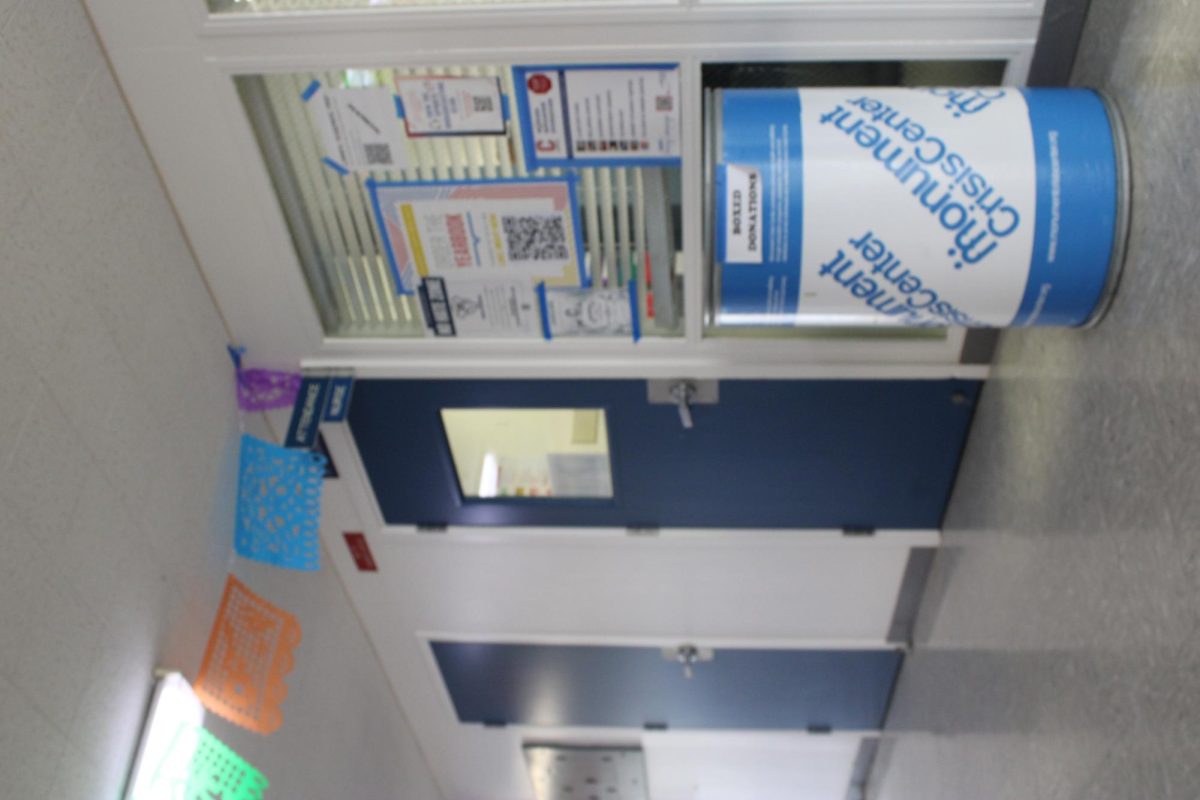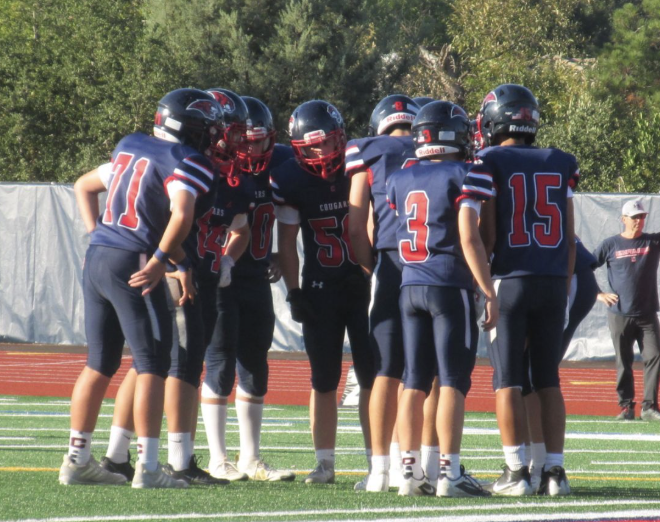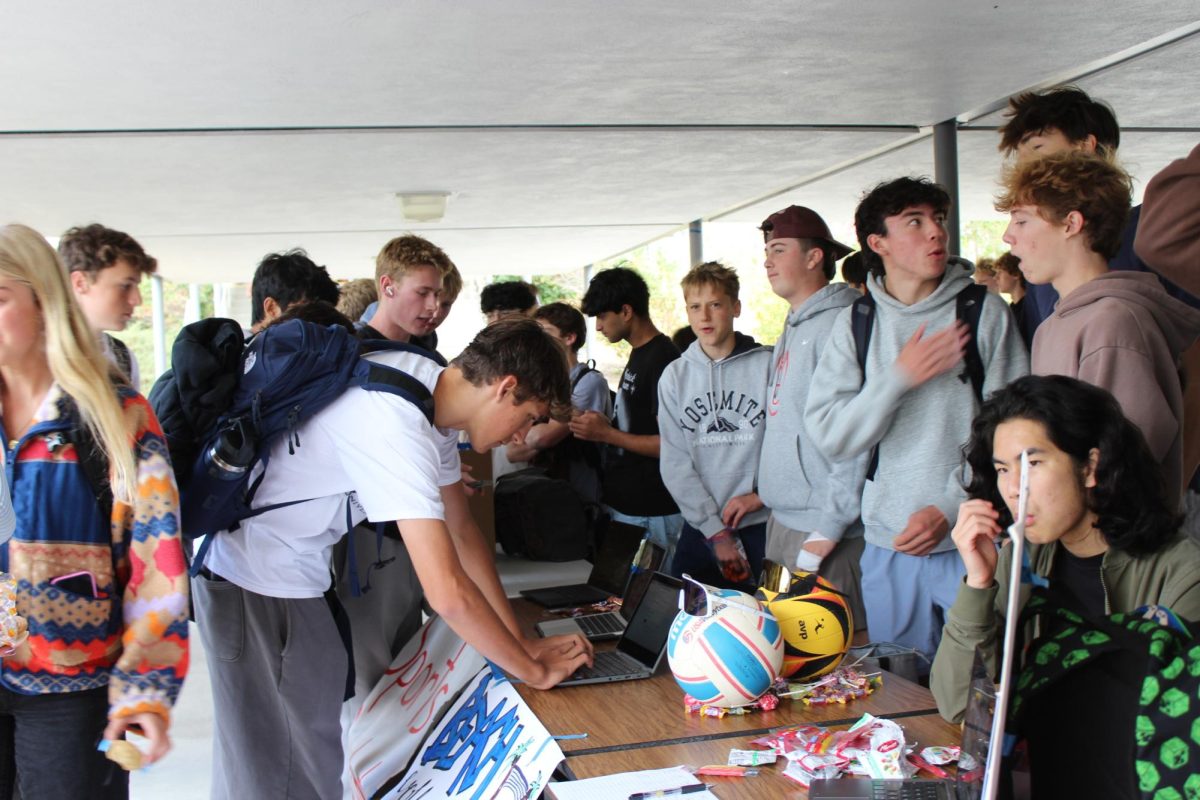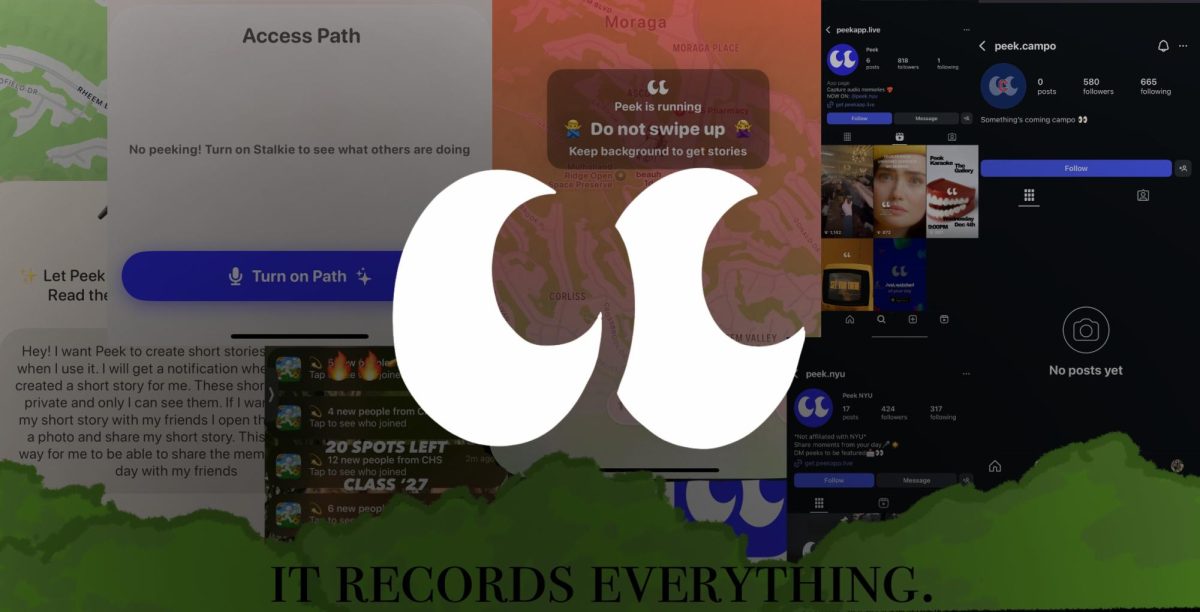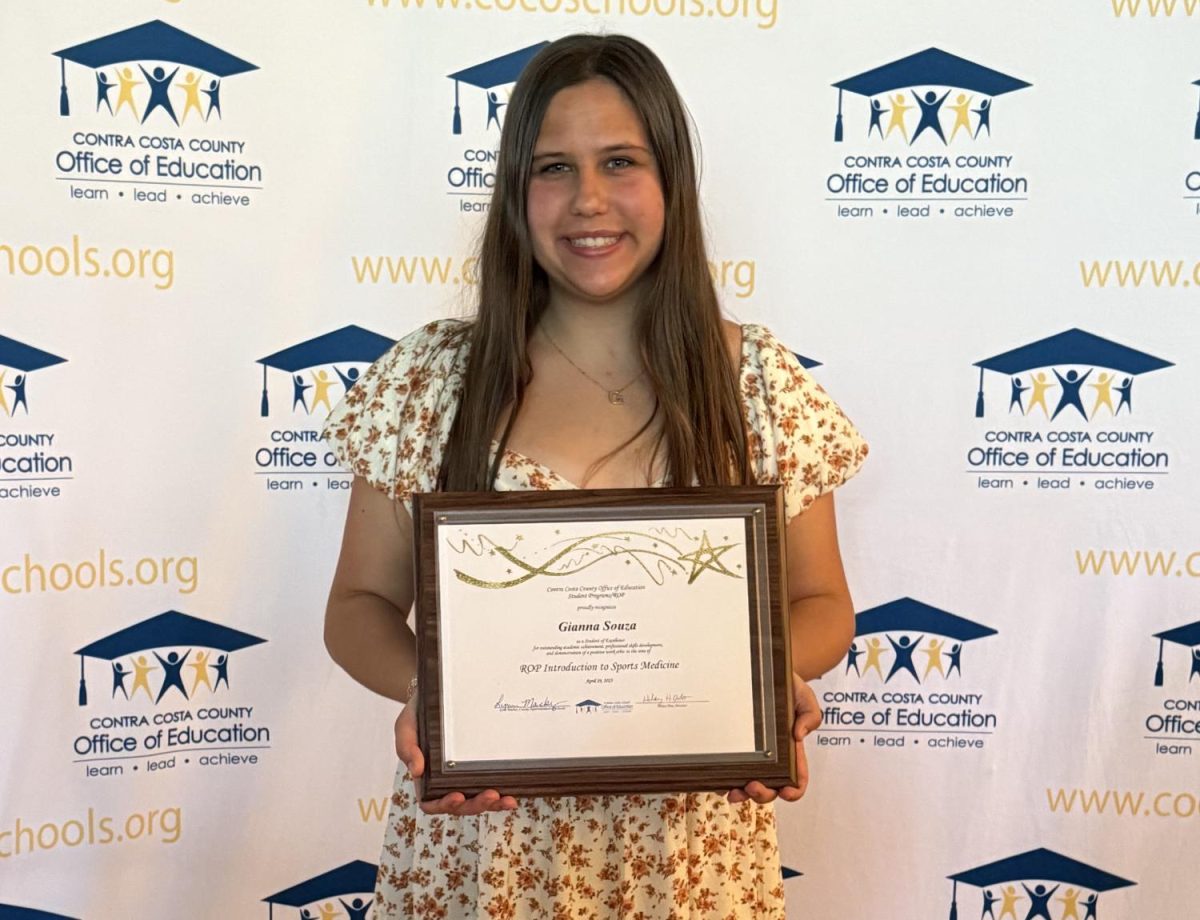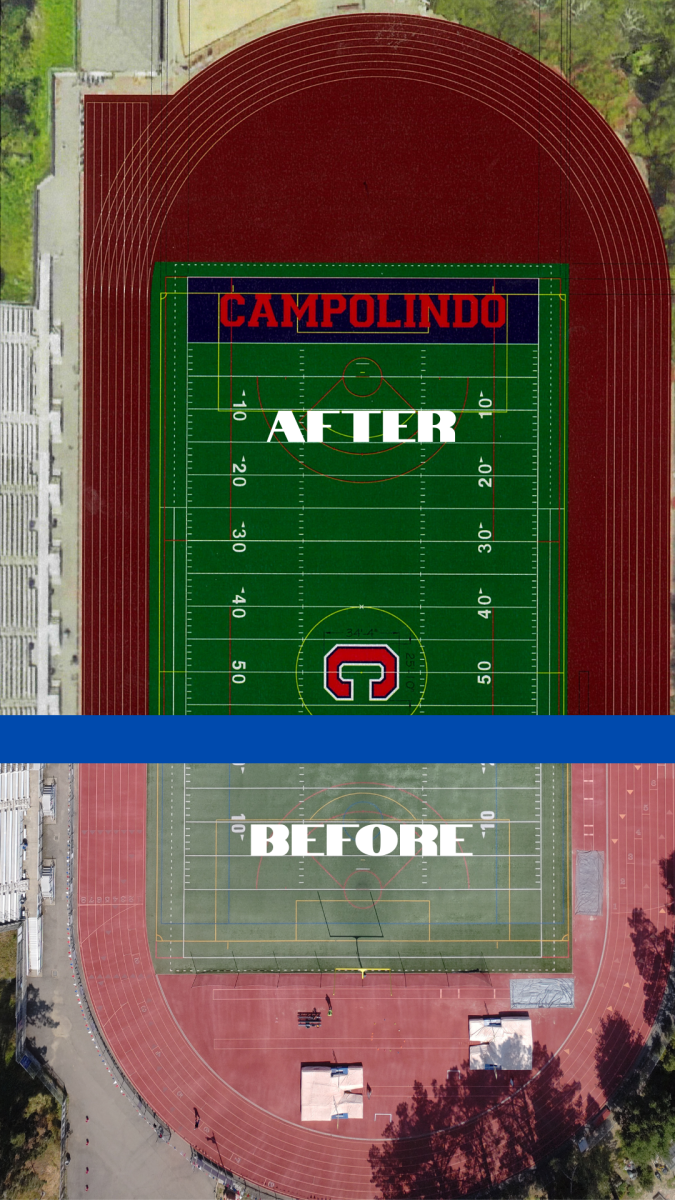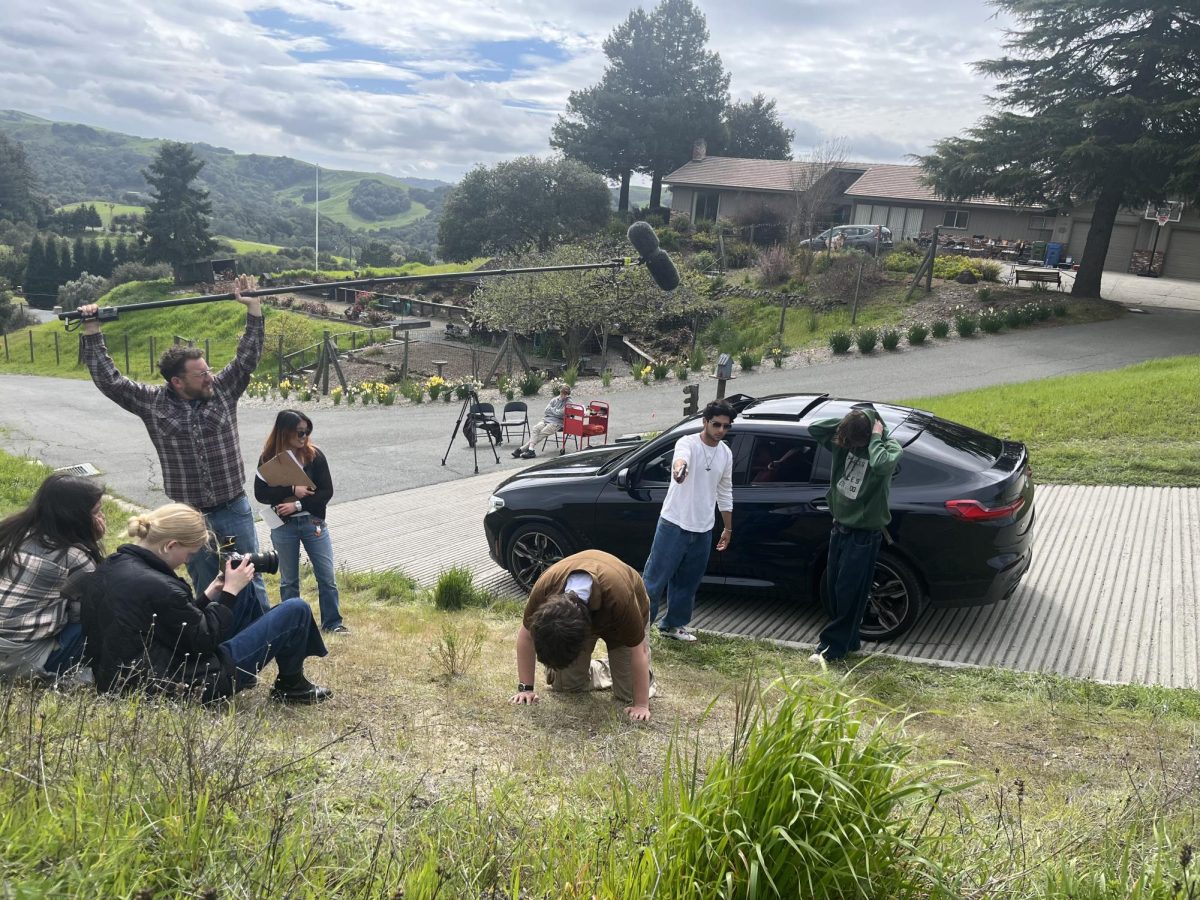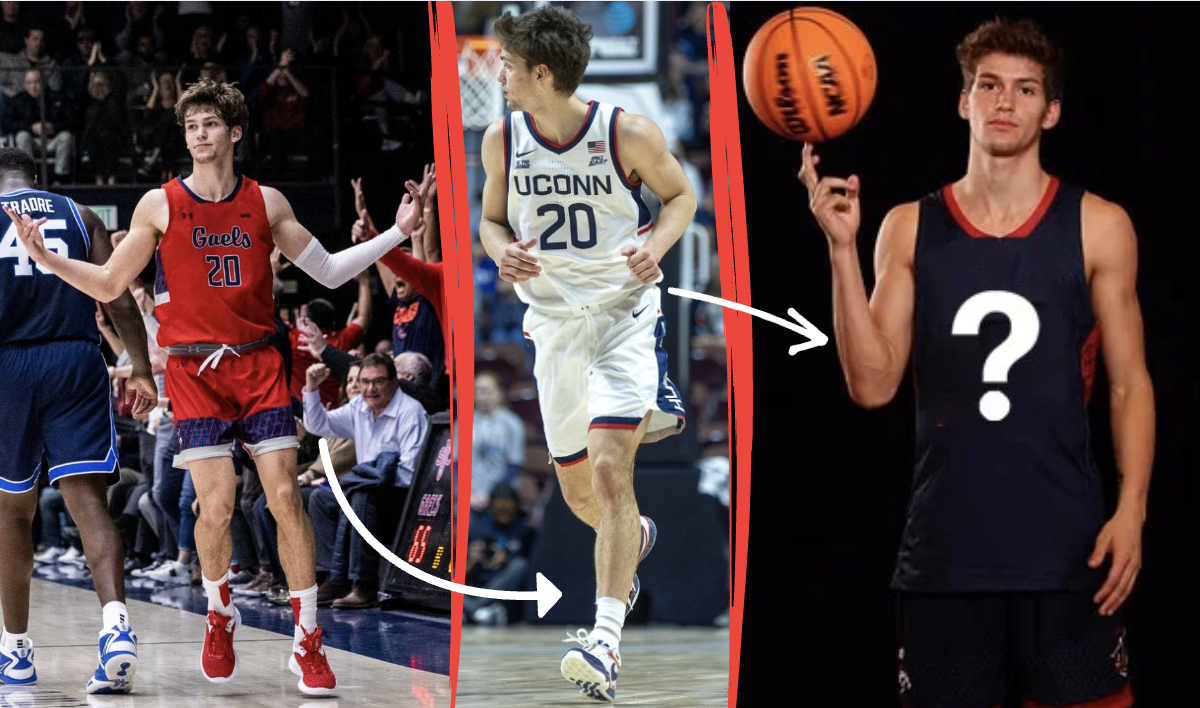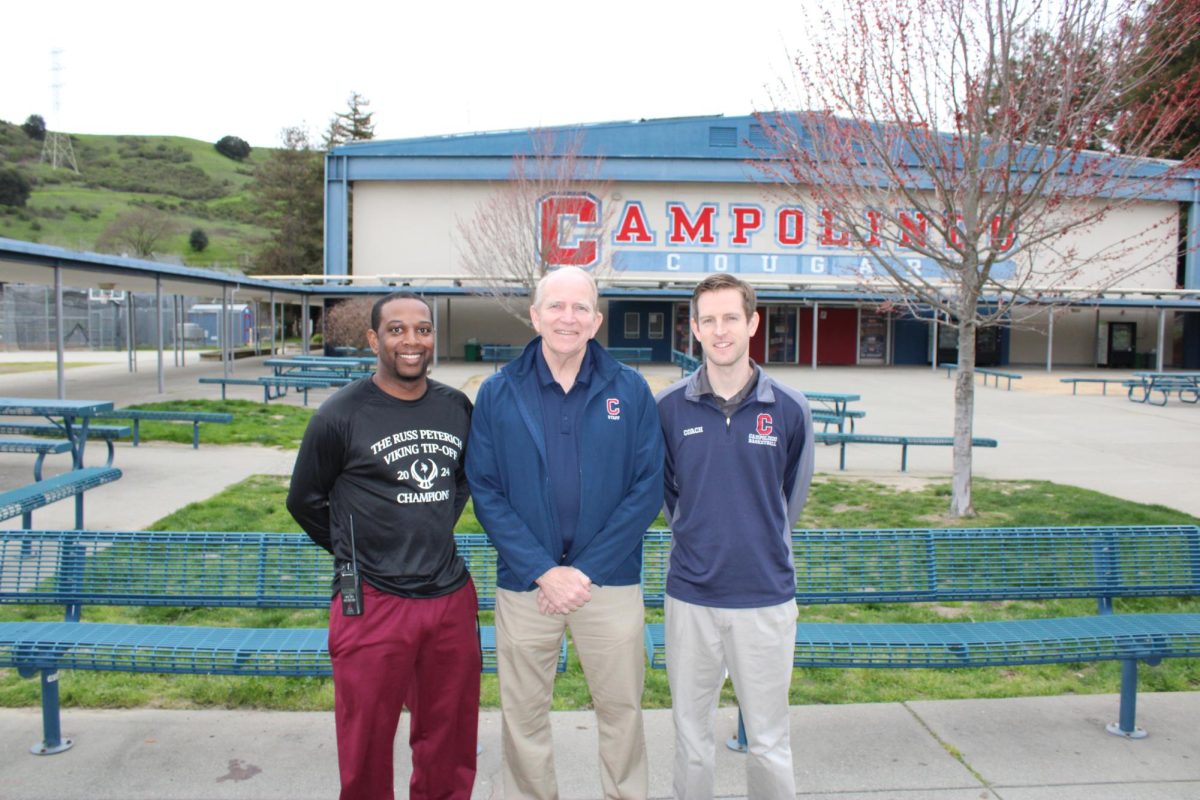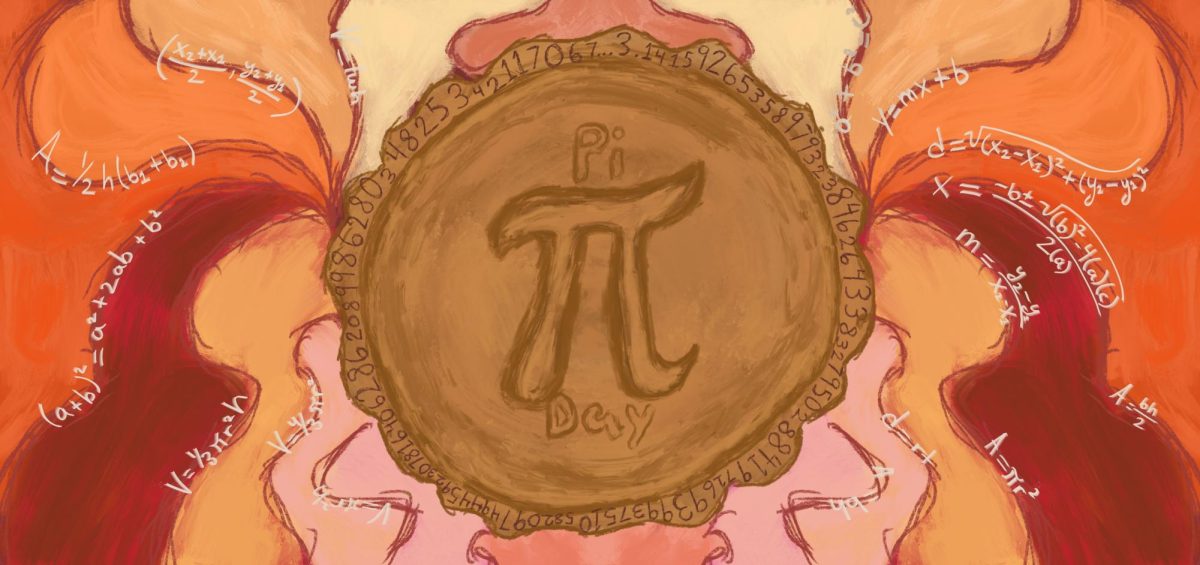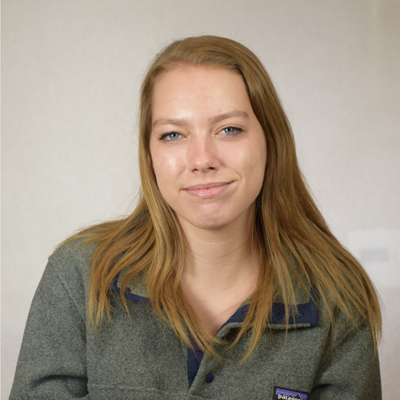AP Psychology students have learned to appreciate their sense of vision through the “Out of Sight” project, an activity which utilizes sensory deprivation to test students’ cognitive knowledge of campus and their ability to trust their classmates, as their partners guided them blindfolded through the school on May 15.
Students were assigned partners by teacher Paul Verbanzsky, and took turns blindfolding and leading each other through the halls, locker buildings, and the quad. “We had to put blindfolds around whoever we’re partnered up with, and we have directions on a piece of paper, and then we take them through this obstacle course which is just getting them around the school,” said junior Julia Eckstein, an AP Psych student.
“It’s supposed to give them a feeling of what it’s like to be blind and have someone guide you, and also it’s supposed to test your cognitive map, which is a psych term, and just how well you know the school without actually seeing it,” Eckstein explained.
Verbanzsky was sure to eliminate any possibility of comfortability throughout the activity by withholding knowledge of the course. “Once they get to their designated spot, they switch blindfolds and then we give a new set of instructions that lead them around campus. They’re not allowed to share the directions,” he said.
According to Verbanzsky, most older students, although blindfolded, were generally aware of their location. “The students who are less familiar with the campus have a harder time with it,” he said.
However, many veteran students still struggled with the sensory deprivation of the project. “I’ve walked around this school campus so many times, and when we walked down the stairs and up the handicap ramp, those were the only 2 times where I actually knew where I was, otherwise if we were walking through hallways, I had absolutely no idea,” said senior Andrada Gherghiceanu.
According to Gherghiceanu, students were creative with their guiding technique. “I saw that some people were holding hands, other people were talking like ‘go to the left.’ I definitely held physical contact with my partner, but at the same time I would give her warnings,” she said.
Minor accidents were unavoidable, despite the effort of the leaders. “My partner accidentally ran into a pole and another kid in my class ran into a locker face-first,” said Eckstein.
Junior Maddy Spiering, Eckstein’s partner, was disoriented by the lack of this vital sense. “I ran into a pole. It was on the ramp and I couldn’t see that it turned, I was trying to follow the railing. She [my partner] was laughing,” said Spiering.
“I witnessed a girl in my class, right at the very end of it, when she was going to sit down she slipped and fell down. A guy ran into the wall, instead of going through a door,” recalled Gherghiceanu.
This is the first year that AP Psych students have done the project. “I was thinking of a way of breaking the ice and having students get to know each other more,” said Verbanzsky. “We re-vamped it for AP Psychology.”
The activity was intended to be performed in an earlier unit regarding the senses, but due to cold weather and AP test preparation, it was postponed. Verbansky believes that the postponed date allowed for less awkwardness between partners, as the class curriculum permits students to become comfortable with each other throughout the year.
Nevertheless, students still had difficulty trusting the guidance of their peers. “I had one of my best friends as my partner, even when I told her, ‘walk straight, there’s nothing in front of you,’ she would still not really trust what I was saying,” said Eckstein.
For Eckstein, the reluctance to walk without the advantage of sight is understandable. “It was scary because you want to trust that the person is guiding you, but you don’t know if there’s something in front of you or if you’re going to run into something. The stairs were definitely the scariest part and it’s really hard to trust your surroundings,” she said
Verbansky hopes to remind his students of the many others who are not fortunate enough to be able to take off a blindfold at the end of this uncomfortable experience. “After we’re done with the blind walk, we returned to class and I showed them a short video of [blind] high school and middle school-aged students that are going to regular high school,” Verbansky said.
“You gain a better appreciation of how important sight is, especially in high school. Imagine not being able to see your locker, imagine not being able to see people around you,” he added.
Gherghiceanu recalls the times that she and those around her have closed their eyes and pretended to be blind, but now realizes the true claustrophobia of the sensation. “I think it really heightened my awareness of what it’s like if you’re in that kind of a situation, and also it really made me appreciate a lot more my ability to see,” she explained.

